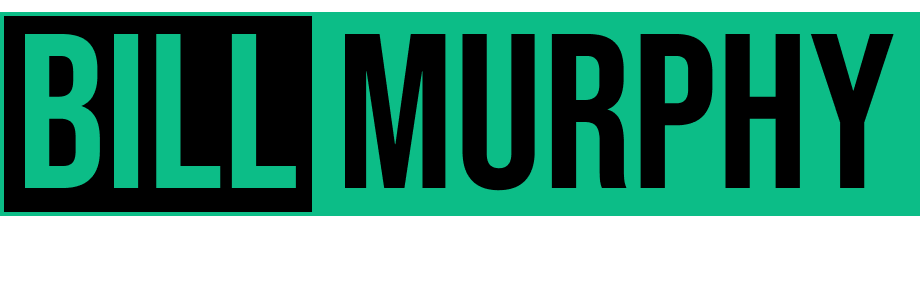“Coaching is unlocking a person’s potential to maximize their growth.” – John Whitmore.
Whether you’re an athlete, parent, employee, entrepreneur, student, author, instructor, or even a coach, you can benefit from being coachable. No one is beyond coaching.
Both coaching and being coached are invaluable. It doesn’t matter what you’re trying to do, there is always more to learn and always room to improve, but there is only so much you can accomplish on your own. Don’t make the mistake of thinking you already have all the answers. There is a world filled with people you can learn from, but before you can even go down that road and consider working with a coach, there is one question you need to ask yourself: Am I coachable?
What Is Coachability?
If I could replace the word coachability with another word, the closest one I can think of is “learnability.” Being coachable is being eager to listen to and apply feedback while maintaining an open mind during all phases of the growth process.
Being coached isn’t always fun, especially in the beginning. Accepting advice can be difficult at first for some people, which is why working on your attitude and mindset is crucial. People who adopt a coachable mindset and stick with their coaching routines become experts at transforming feedback into personal and professional growth.
Fun fact: Did you know that even the most influential people in the world – like Opray Winfrey, Bill Clinton, and Mother Teresa – have been coached?
What’s the Difference Between Coaching and Therapy?
Many people misunderstand coaching for therapy, but it is not the same. A coach – whether career, health, leadership, or life coach – guides clients as they work to reach goals. However, a therapist works more on treating mental health issues. Let’s look at a few other differences:
- Coaching focuses on the present day and the future. Think, “What can you do now to help you reach your goal more quickly?” In contrast, therapists help patients heal from their past and deal with emotional trauma.
- Coaching sessions are typically driven and focused, while therapy sessions are more open-ended and free-flowing.
- Coaching helps with action-oriented goals, and therapy works more with emotional goals.
- A coach and coachee are on a level playing field, while therapists maintain a healthcare provider/patient relationship.
How Do I Know If I’m Coachable?
Let’s start with what coachability isn’t. Being coachable is NOT:
- Always thinking you’re right.
- Believing you already know everything.
- Being unwilling to learn.
- Having a negative attitude and a fixed mindset.
- Getting upset when receiving constructive criticism.
- Being reluctant to try new things or do what it takes to grow.
- Having the inability to self-reflect.
- Having a prideful, defensive attitude.
So, let’s now look at what it means to be coachable. For coaching to work, you have to be open-minded in all the different areas of your life. That means you have to be willing to learn, and you have to be willing to take criticism. This can be extremely difficult for some people, especially if they haven’t been forced to do it before. The problem is that some people just don’t want to change. They either don’t want to put in the work or think they know better. When I tried to recommend a couple of books to a new coaching client of mine, he told me, “I don’t read.” Apparently, he had never read a book, and he wasn’t ready to start. There was pushback on day one, and that reluctance to take advice, get out of his comfort zone, and try a new approach limited his progress. It wasn’t much of a surprise when he wasn’t able to reach his goals and bowed out of the program.
Being coachable is being authentic, embracing a growth mindset, remaining accountable, and getting out of your comfort zone. It’s coming into the process with the best attitude possible!
How Can I Become More Coachable?
Did you know a 2009 study reports that 40% of the impact of coaching depends on the coachee’s readiness for the coaching? If this tells us anything, it’s that you must prepare yourself for being coached.
So, what steps can you take to become more coachable? Check these out:
- Let go of all preconceptions, allowing yourself to be curious and open to new things.
- Be authentic, present, and self-aware.
- Be ready to get outside your comfort zone.
- Welcome tough advice and unexpected feedback.
- Hold yourself accountable and refuse to fall back on excuses.
- Be action-oriented and think long-term.
- Don’t be afraid to ask questions.
- Go into the process understanding that your coach wants what’s best for you.
- Be vulnerable and ready to dive deep.
- Enjoy the journey! Don’t get caught up in obsessing about your end destination.
Are You Ready to Learn More About Being Coachable?
I can’t stress enough how valuable coachability is, whether athletically, personally, or professionally. Since 2017, I have been a business coach for the Fairway Ignite program, coming into each session with a whole-life approach.
I highly recommend the “whole-life” style for anyone seeking a coach, which addresses personal issues that may be bleeding over into your professional life. If something in your personal life is holding you back, you will also be held back at work, hindering your success in reaching your goals.
For more on finding success in your career, check out my February 2023 podcast on How to Overcome Any Adversity and Thrive in Your Career.
And lastly, be sure to snag your copy of my book, Thriving in the Storm: Nine Principles to Help You Overcome Any Adversity, where I share how you can go from simply surviving day to day to thriving through life!
